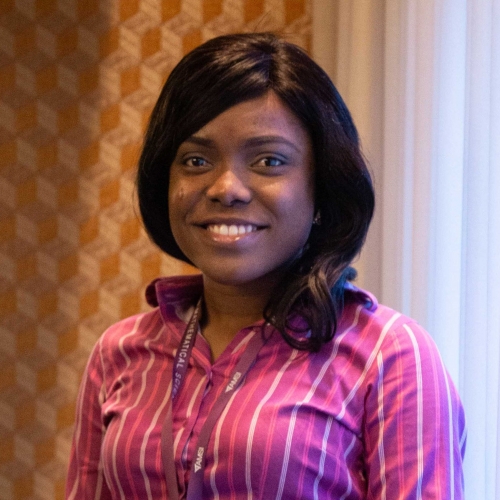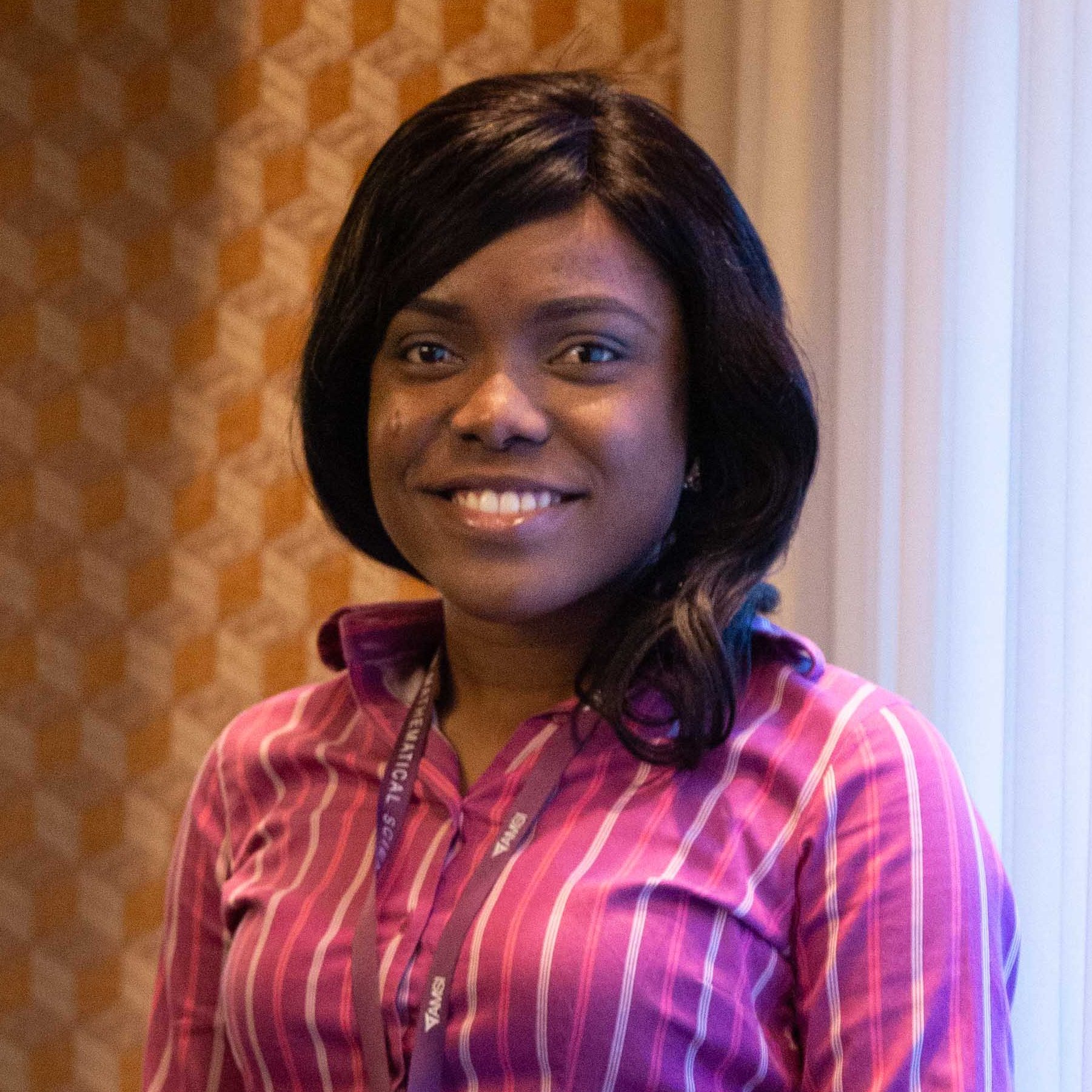
Olanike Adeoye
Victoria University, Melbourne
I obtained my Honour’s in Industrial Mathematics in 2012. In my final year, I undertook my dissertation using optimal control with an application to cyberpsychology via the SEIR model. I furthered my education at the University of Strathclyde, UK to obtain an MSc in Economics and Finance. I topped my class at the end of the programme, this encouraged me to pursue my PhD in corporate finance using game theory as my methodology. I am half-way into the programme, and I have improved on my research and mathematics skills since then. In my pastime, I love to weave fictions and write inspirational contents. I have published two books, one in 2016, Poached Red and another in 2018, The Natural Resource Called Boredom.
Can you give me a quick overview of the type of mathematics you are studying and its potential impacts for the broader community
I am currently applying differential game theory to corporate governance, particularly capital structure. I am doing this as an advancement on my previous research in optimal control which I undertook during my honour’s. The application of differential game theory to corporate governance provides more information about the strategic interaction between the manager and shareholder/debtholder over a long period of time and can help public companies manage an equilibrium capital structure while considering the interests of significant parties in the company’s decision-making process.
You attended AMSI Optimise, what drew you to this event? What was the most valuable part of AMSI Optimise for you in terms of furthering your career in mathematical sciences?
I have been keen on optimisation since my bachelor’s. An opportunity to attend AMSI Optimise was a privilege to improve on my exposure in the area of optimisation and its application. In addition, the most valuable part of the event for me was the new knowledge about the extensions of optimisation that I acquired, its thorough application to different fields, the blend of academics and industry, and its different depths. All of these have opened my eyes to further opportunities for research in my career in mathematical sciences.
I gained new contacts from the events and received personal recommendations for my PhD work. I also received assurances of employability in my field, post-PhD.
The key aim of Optimise is to strengthen research-industry collaboration within this key mathematics innovation space. How effective was this event in stimulating such discussion and opportunities?
AMSI Optimise 2019 was very effective in strengthening this collaboration, because we could hear from the industry experts as opposed to the frequent communication and interactions with strictly academicians. Industry experts talked about their talent needs, the area of focus for the industry and reassured that mathematics was not an abstract course that wasn’t very needed in the industry. Personally, it reassured me that I had a place in the industry if I sought one.
What do you think are the key challenges for Australian industry-research collaboration within optimisation? What needs to happen to strengthen these linkages?
I believe the old-aged disconnect of mathematics and the real world/industry may have contributed to this. Events such as AMSI Optimise should be increased to bring industry experts and academics together in forums that highlight the market need for optimisation/mathematics.
How important was receiving a CHOOSEMATHS grant in terms of your ability to attend and fully participate in the AMSI Optimise 2019 sessions throughout the week?
The CHOOSEMATHS grant was the primary reason I was able to attend and fully participate at the event. Without the grant, I wouldn’t have been able to attend and get involved, such as presenting a poster and getting feedback due to cash constraints and I would have missed out on all these knowledge and information I can now boast of. I heard about the grant via information on the AMSI’s website.
How important are initiatives such as the CHOOSEMATHS Grants in terms of fostering the participation and achievement of women in mathematics, particularly in terms of access to networking opportunities and further training opportunities?
Grants are incentives to attend mind-challenging events such as AMSI Optimise, therefore such grants would encourage the attendance of women in Mathematics events, and consequently improve their understanding of the field, as well as connect them with other women taking up similar challenges, and increase the number of women in this category eventually.
The CHOOSEMATHS Grants are part of a broader program being delivered by AMSI Schools with support from BHP Foundation to turn the tide on Australia’s maths deficit and strengthen maths education and participation of women across the discipline. What do you see as the big challenges facing maths in Australia, particularly for women?
Maths is rigorous and there is no way to play down this truth, some of the challenges include finding people who would be committed to such rigour, particularly if they do not have extra incentives to choose maths. In addition, promoting the applications and commercialisations of maths needs to be improved upon.
Did you always want to pursue a career in maths? Were you encouraged to study these subjects at school?
I did not always want to pursue a career in mathematics, in fact initially, I chose to study Computer Science, but the university culture in my country, gave you a similar course, if for a reason you couldn’t be admitted into your first course of choice. So, I started my career in mathematics, and because I thought it abstract initially, I started seeking practical ways to apply it. I was never encouraged nor discouraged to study mathematics. However, my peers showed me a bit of respect whenever they found out I studied mathematics, this is because they assumed it takes some ingenuity to study mathematics. Maybe that could allude as some form of encouragement. I also got some negative side comments on where exactly I thought I would work after studying mathematics except teaching it.
Where do you see yourself in five or ten years time?
In five or ten years times, I would have bagged my PhD and hope to be working in an industry where I am able to commercialize my knowledge of mathematics to improve the quality of lives of people.
If a peer asked you if they should attend AMSI Optimise, how would you describe the conference to them?
Mind-engaging, and a place to improve your exposure, and increase your network.
Any other feedback/comments you would like to provide on the CHOOSEMATHS grant or AMSI Optimise?
I am deeply grateful for the opportunity to attend AMSI Optimise via the CHOOSEMATHS grant, it has definitely widened my horizons and increased my networks. The event proved that it was well planned and had required the sacrifices of a number of people, to whom I am grateful.

